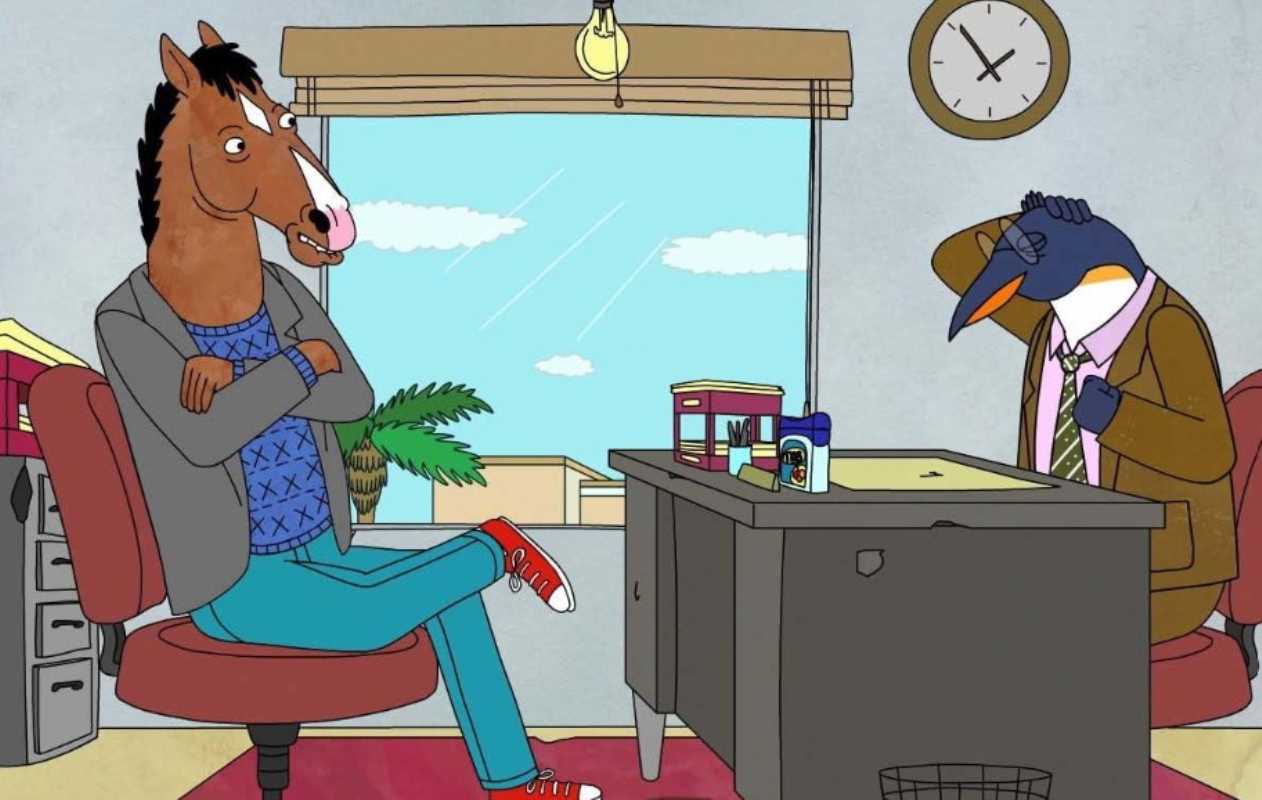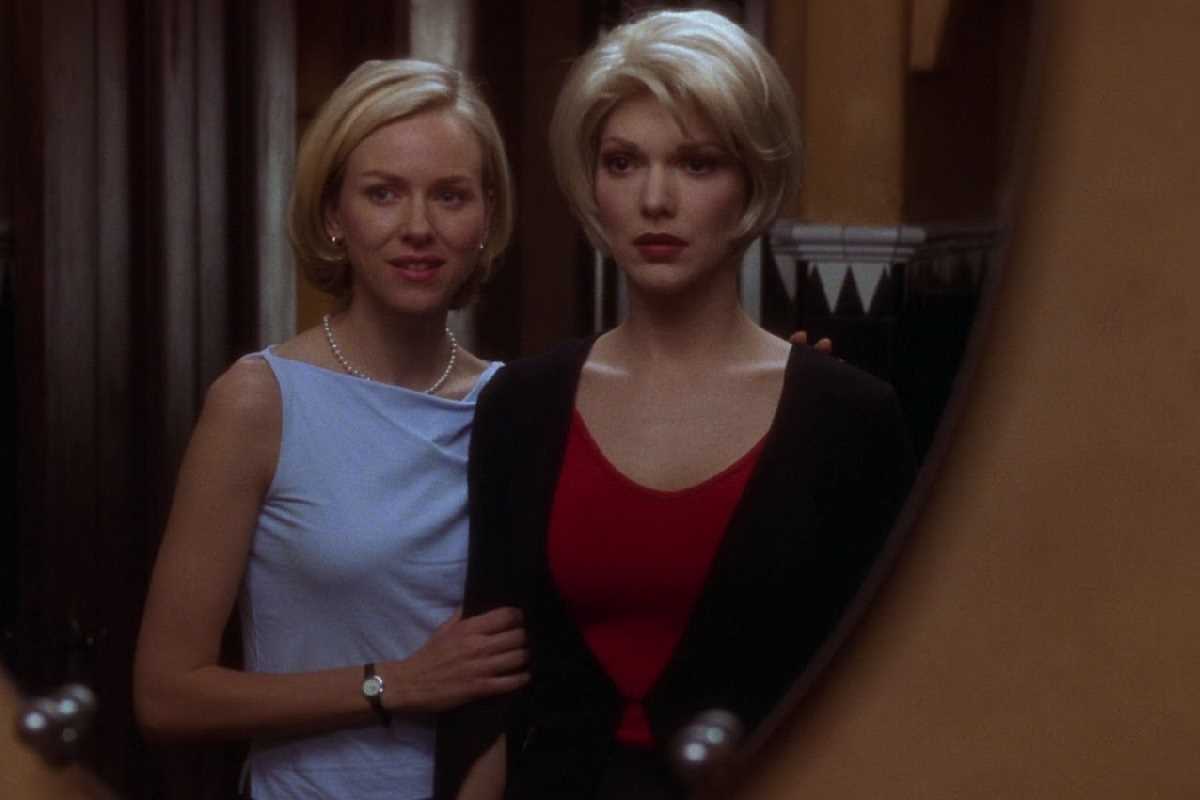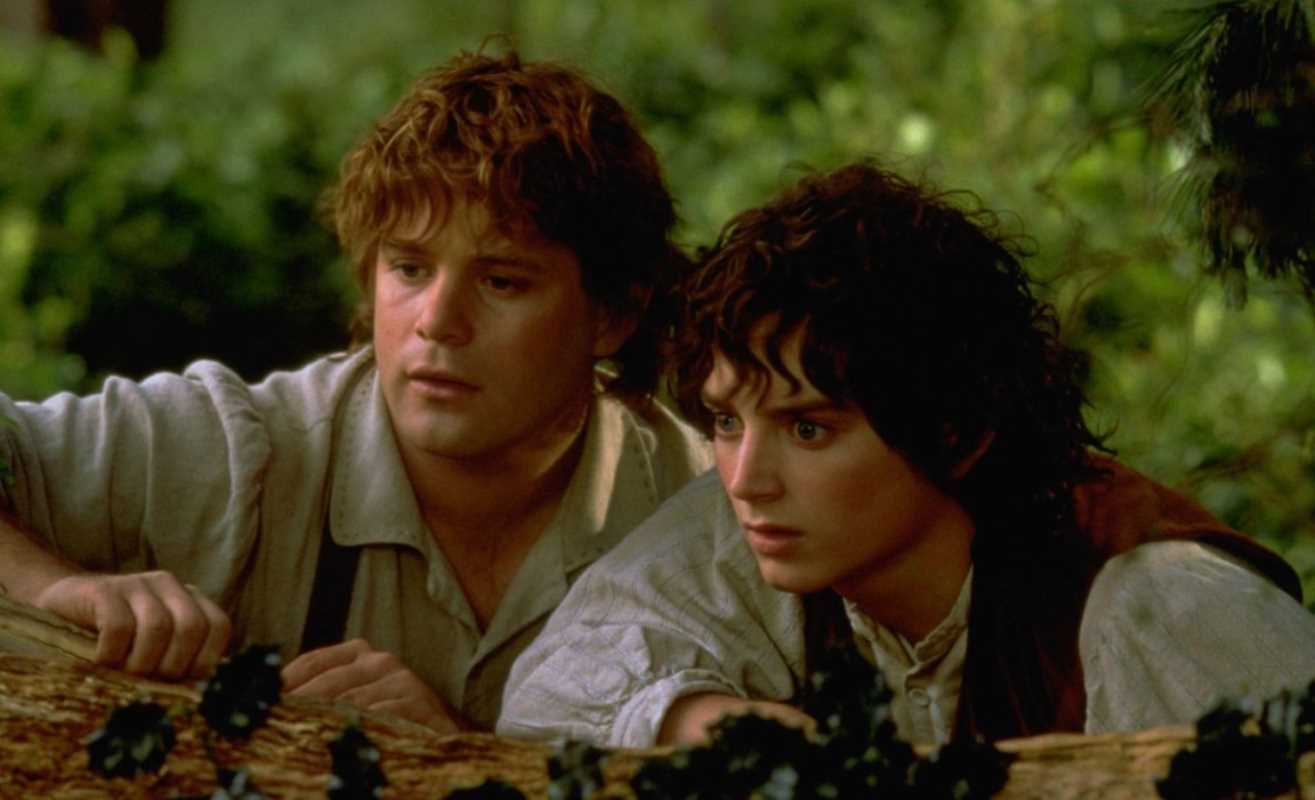BoJack Horseman, an animated series created by Raphael Bob-Waksberg, premiered in 2014 and quickly became one of the most profound and innovative shows of its time. While its surface-level absurdity—featuring an anthropomorphic horse as the protagonist—might suggest a comedic romp, BoJack Horseman consistently subverts expectations, using sharp satire to address serious issues like addiction, depression, celebrity culture, and the consequences of toxic behavior. The series has often been praised for its unique ability to balance humor with deep emotional insight, blending the absurd with the serious in a way few shows manage to achieve.
A World of Absurdity, A Mirror of Reality
At its core, BoJack Horseman is a satire of Hollywood and the entertainment industry, but it takes this critique much deeper than surface-level mockery. The series is set in a world where humans and anthropomorphic animals coexist, blurring the lines between reality and the absurd. The titular character, BoJack Horseman (voiced by Will Arnett), is a washed-up former TV star living in the shadow of his past fame, perpetually grappling with self-loathing and a desperate craving for relevance.
The show's decision to create a world where animals live alongside humans is a brilliant satirical device. The surreal nature of anthropomorphic animals allows the show to play with the absurdity of Hollywood and its expectations, offering a unique lens through which to critique both the entertainment industry and society at large. For instance, characters like Mr. Peanutbutter (a Labrador retriever) and Todd Chavez (a human) exist in a world where their bizarre lives mirror the often ridiculous yet serious world of celebrity and fame.
This world is both a parody and an amplification of the very real challenges of living in the public eye. It allows the series to explore how fame distorts human lives, creating larger-than-life personas and pressures that ultimately leave its characters feeling hollow. It becomes clear that in BoJack Horseman, the world's absurdity is a reflection of the absurdity of celebrity culture itself.
Celebrity Culture and Its Hollow Nature
BoJack Horseman provides an astute critique of Hollywood's obsession with fame, and it exposes how fleeting, hollow, and damaging that fame can be. The show’s protagonist, BoJack, is a caricature of a washed-up star desperately trying to regain the fame and admiration he once enjoyed. His self-destructive tendencies, including substance abuse and toxic relationships, serve as a poignant commentary on the pressures that accompany public life.
The way BoJack constantly tries to recapture his past success is an allegory for how the entertainment industry commodifies its stars, only to discard them once they’re no longer relevant. The recurring motif of BoJack’s need for validation is central to understanding the series’ satirical genius. From the failed TV series Horsin’ Around (a clear parody of Full House) to his misguided attempts at serious acting in films like Secretariat, BoJack’s journey through Hollywood represents the toxic nature of fame and the way it often leaves people stranded, unfulfilled, and struggling to rediscover purpose.
The show also touches on how the entertainment industry often reduces its stars to caricatures, perpetuating a cycle of objectification and commodification. In one particularly memorable episode, “The Dog Days Are Over,” the series highlights the intense scrutiny of the public, wherein celebrities are constantly expected to live up to unrealistic standards, both on-screen and off. This commentary on the damaging effects of fame is not only scathing but relatable, speaking to the way society at large elevates individuals to god-like status only to tear them down once they falter.
Mental Health and the Cost of Self-Destruction
One of BoJack Horseman's most powerful satirical angles is its honest portrayal of mental health issues, particularly depression and addiction. BoJack’s constant struggles with self-worth, isolation, and substance abuse are portrayed not as quirky character traits but as symptoms of a much deeper problem: the emotional toll of living a life of excess, fame, and denial.
In BoJack Horseman, addiction and depression aren’t just plot points—they are integral to the narrative. The series doesn’t glamorize or simplify these issues but instead presents them in a raw, painful way that is often difficult to watch. BoJack’s substance abuse is frequently a coping mechanism for his deep emotional void, and his inability to confront these issues is what makes his journey so tragic. Unlike many other shows that offer a more hopeful or redemptive conclusion, BoJack Horseman doesn’t shy away from the reality that for some people, recovery and redemption aren’t easily achieved at all.
In episodes like “Fish Out of Water,” where BoJack is stranded in an underwater city without communication, the show uses visual storytelling to express BoJack’s isolation and depression. The episode's silence and visuals convey a sense of loneliness that no dialogue could match, making it one of the most powerful moments in the entire series. BoJack’s mental health struggles are not sanitized or treated lightly; they are depicted as a constant, overwhelming force that has lasting consequences on his relationships and his psyche.
Gender and Power Dynamics
While the show critiques celebrity culture and mental health, it also offers a sharp commentary on gender and power dynamics, particularly in Hollywood. The series features strong, nuanced female characters like Diane Nguyen (BoJack’s former ghostwriter) and Princess Carolyn (BoJack’s long-suffering agent), who each grapple with their own ambitions, desires, and limitations within an industry that is often dismissive of women.
Diane, in particular, serves as a feminist counterpoint to BoJack’s self-centeredness. A writer and intellectual, Diane struggles to balance her personal and professional life while also facing the sexism that permeates her career. In the episode “The Dog Days Are Over,” Diane must reckon with her internalized biases about success and fame. Her journey throughout the series underscores how women in Hollywood, even those with talent and agency, are frequently boxed in by their gender and forced to navigate systemic barriers that their male counterparts don’t face.
Princess Carolyn’s storyline also delves into the gendered expectations placed on women in the workplace. As a single mother and a high-powered agent, she is constantly torn between her personal and professional lives. Her character showcases the impossible balancing act many women in demanding careers face, providing a satire of how women in power are often expected to sacrifice their personal well-being for the sake of their careers and the men they serve.
Philosophical and Existential Insights
Despite its absurdity, BoJack Horseman frequently delves into deep existential and philosophical themes. In addition to its social commentary, the series explores what it means to be truly happy or fulfilled. Throughout the show, characters continually search for meaning yet often become empty. BoJack’s journey is one of self-doubt and self-destruction, marked by moments where he thinks he’s on the path to redemption, only to fall back into old behavior patterns.
In the final season, the series forces viewers to confront whether true redemption is possible. Through BoJack’s struggles with his past mistakes and his relationships, the show grapples with the idea of forgiveness—both of others and oneself. BoJack’s inability to find peace reflects the series’ broader message: sometimes, the search for happiness or redemption is never-ending, and the pursuit of meaning is itself a part of the human condition.
 (Image source: Tornante Television; Boxer vs. Raptor; ShadowMachine)
(Image source: Tornante Television; Boxer vs. Raptor; ShadowMachine) .jpeg)





